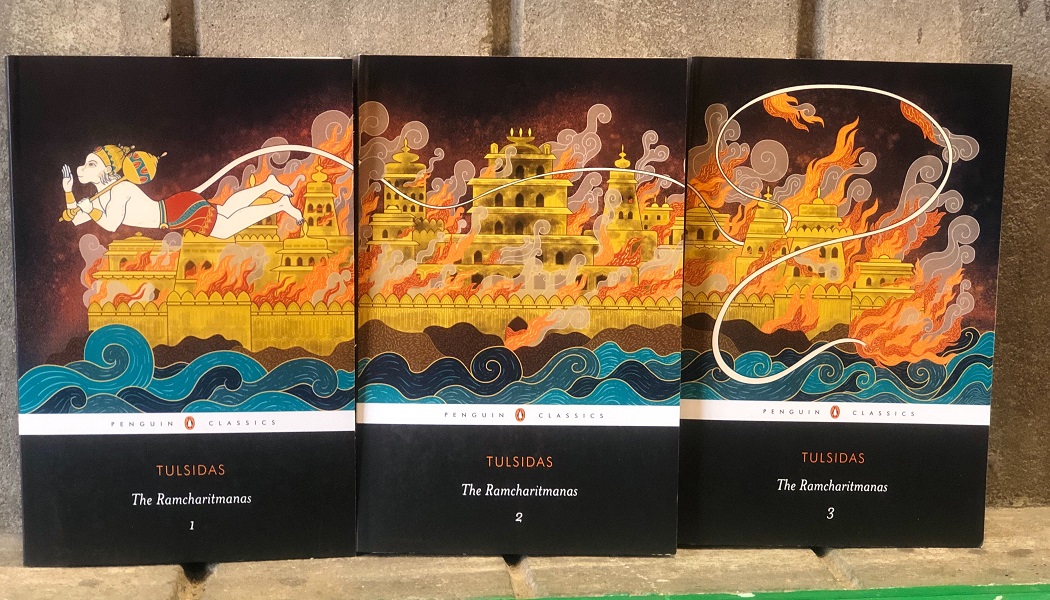
The most popular devotional text recounting the adventures of the Hindu god Ram ‘The Ramcharitmanas’, composed by the poet-saint Tulsidas in the sixteenth century during a dynamic period of religious reform, was instrumental in making the story of Ram-and his divine feats against Ravan, the demon king of Lanka-widely accessible to the common people for the first time.
Rohini Chowdhury’s exquisite translation brings Tulsidas’s magnum opus vividly to life, and her detailed introduction sheds crucial light on the poet and his work, placing them both in the wider context of Hindi literature. Here are a few reasons why you should pick a copy of Rohini’s translation of this timeless epic.
It is a clear and accurate translation of Tulsidas’s epic poem, and conveys, in the best way possible, its scale and grandeur.
~
The author has rendered each original doha and sortha into four lines in English translation.
~
Tulsi’s institution of the Ram Lila may be seen as an attempt at a degree of social integration…this inclusivity remains, by and large, a feature of the Ram Lila even today.
~
Tulsi wrote for an audience which was familiar not only with the story of Ram, but also knew the dozens of ‘backstories’ that weave in and out of the main narrative… Rohini’s translation attempts, in footnotes, endnotes and a glossary, to give as much background information as she could.
~
The Hindu gods all have more than one name, and Tulsi refers to them by these different names, Rohini has kept the names as Tulsi has used them; but to make it easier to the modern-day reader she has added the various names with their meanings under the glossary entry for the relevant god or goddess.
~
Rohini’s translation attempts to give the reader some idea, at least visually, of the structure of the poem. Therefore, the dohas/sorthas are indented; chhands, stutis and shlokas are in italics; and the chaupais form the main body of the text.
~
This translation is a tribute to Tulsidas’ epic poem and brings to the reader the richness and depth of storytelling Tulsi das brought into it.









